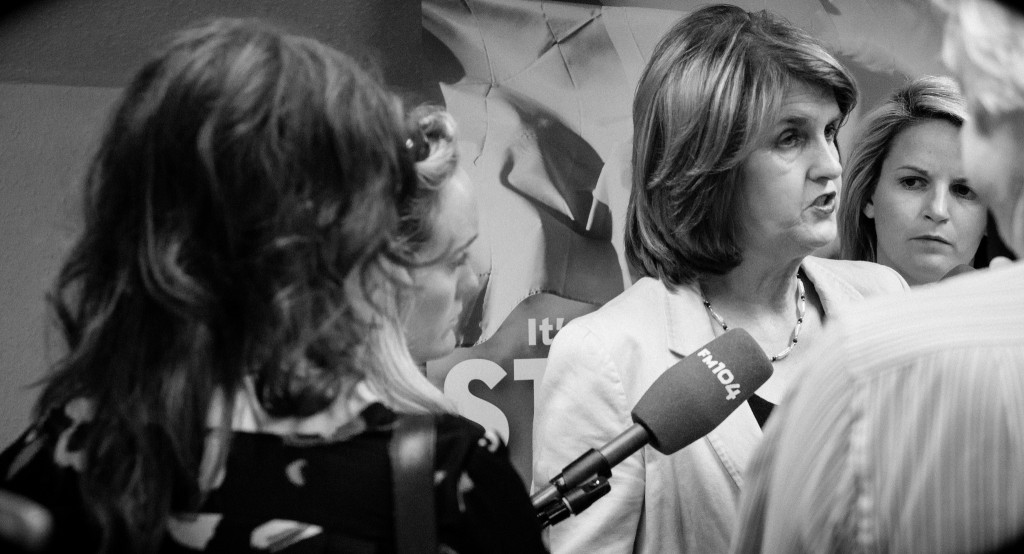BY DUSTY WUNDERLICH · JUNE 30, 2015
ADVICE, LIFESTYLE, MANAGEMENT, RESOURCES, STRATEGIC
Originally published in AlleyWatch
People are the foundation of your company, and every employee you add serves as another brick — making your company stronger and more resistant to the pressures of today’s marketplace. But if you don’t invest in good bricks and use some sort of mortar to bind them together, it won’t matter what you build on top; your foundation will eventually crack and crumble.
That’s why it’s so important for a tech startup — or any startup, for that matter — to make a director of people and culture one of its first hires.
But a director of people and culture isn’t just your chief HR officer who manages payroll, works with insurance providers, and handles employee-related issues. This person is responsible for the development and cultivation of your company’s core values.
By actively and purposefully establishing core values, you’re investing in a culture that can bring everyone together and provide a better sense of purpose. In fact, it often means the difference between “engaged” employees and “disengaged” ones.
The Impact of Engagement on Productivity and Profits
Of employees classifying themselves as “engaged,” 59 percent believe their jobs make them more creative in the workplace, and 78 percent are more willing to recommend products or services coming out of their companies. The reverse is true for “disengaged” employees, with only 3 percent feeling creative and 13 percent being willing to recommend products or services.
Creating that sense of engagement is important in today’s economy where the line between work and personal is blurred. People no longer put in eight hours at the factory, listen for the whistle to blow, and go home to their “personal lives.” Employees are now communicating and collaborating around the clock, which means job satisfaction is a larger component in their overall life satisfaction than ever before.
It’s up to the director of people and culture to create an environment where employees feel engaged. He should be at the center, making sure your company revolves around the axis of its core values. And when you look at the data, a rich culture driven by core values is one of the variables that correlate most closely with success.
A rich culture can also seriously benefit your profits. When employees are engaged, operating income increases by an average of 19.2 percent over the course of a single year, while a disengaged staff decreases operating income by nearly 33 percent. That means that with a great culture, your company could accomplish with 20 employees what it might take other companies 30 employees to do.
Passion Is Key to Culture Development
Entrusting the creation of your culture to just one person is a huge gamble, so you must take great care when hiring. And there’s really only one skill that’s an absolute necessity: passion. But the catch is that this passion must encompass three diverse dimensions:
- Vision: Because this person is responsible for developing and cultivating your company’s core values, the candidate must be a visionary in terms of how changes in culture will impact the dynamic of the workplace. He will be in charge of developing staff and making sure everyone is living up to your values.
- Staffing: To effectively work within this role, the candidate must also genuinely care about people. He must derive a certain amount of satisfaction from seeing others succeed and possess the social skills to act as both salesperson and psychologist for every person in your organization.
- Profits: The director of people and culture is ultimately an executive position. And as an executive, the candidate needs to have both an understanding and a passion for how all the different facets of the business work. He must understand operations and know how to marshal resources. Profitability is a function of efficiency, and this position is one of the key executive positions that should see how all those pieces fit together.
Entrepreneurs who ignore culture do so at their own peril. One of the most common mistakes young companies make is hiring the wrong types of people. It’s also one of the most costly mistakes. Hiring employees who are a bad fit for your culture and corporate vision can be difficult and expensive to recover from, especially if they’re managers or executives.
But with a good director of people and culture on your team from the start, you can be worry-free while building your company on a strong foundation.
